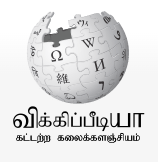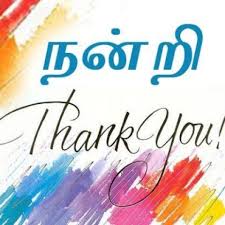மீள்பிரசுரம்: 88 வயதாகும் ஈழத்து வரலாற்று நாயகர் எசு. ஏ. தாவீது (எஸ். ஏ. டேவிட்)
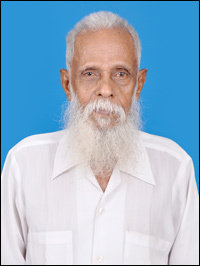 தளரா நெஞ்சம். மருத்துவமனை கண்டிராத உடல். செருப்பணியாத கால்கள். திருமணமாகாத வாழ்க்கை. 1970 முதலாகக் காய்கறி உணவு. முகத்தை மூடும் வெள்ளை மீசையும் தாடியும். 88 வயதிலும் இரு மாடிகளுக்கும் படியேறி என் வீட்டுக்கு இன்று, புலர் காலை 0600 மணிக்கு வந்தவர், பெரியார் எசு. ஏ. தாவீது என நான் அழைக்க விரும்பும் எஸ். ஏ. டேவிட். 1970களில் வவுனியாவில் காந்தீயம் அமைப்புத் தொடங்கிய காலங்கள். மலைநாட்டில் துணை மருத்துவப் பணிகளில் ஈடுபட்டிருந்த இராசசுந்தரம், கொழும்பில் என்னிடம் வருவார். அவருடன் டேவிட் ஐயாவும் வருவார். கொழும்பு வைஎம்சீஏ விடுதியில் டேவிட் ஐயா தங்கியிருப்பார். அந்தக் கட்டட வரைபடத்தைத் தயாரித்துக் கொடுத்ததால், அதற்குக் கட்டணம் வாங்காததால், அவருக்கு எப்பொழுதும் அங்கே ஓர் அறை. 1972 இலங்கை அரசியலமைப்பு, அதைத் தொடர்ந்த தமிழர் நிலை, இவை எம்மை இணைக்கும் பாலம். மலைநாட்டுத் தமிழரை வன்னியில் குடியேற்றும் காந்தியத்தின் முயற்சி. இராசசுந்தரம், டேவிட் இருவரின் இடையறா ஈடுபாடு, இதில் என் சிறிய பங்களிப்பு. 1977 இனக் கலவரத்துடன் கொழும்பைவிட்டு வெளியேறினேன். யாழ்ப்பாணத்தில் 1978இல் தந்தை செல்வா நினைவுத் தூண் கட்டியெழுப்பும் குழுவின் செயலாளராக நான். திராவிடத் தூணாக 80அடி உயரத்தில் அமையும் வரைபடத்தைத் தந்தவர் வி. எஸ். துரைராசா. மொட்டையாக நிற்காமல் கூம்பாக்கிக் கலசத்தில் முடிக்குமாறு டேவிட் ஐயா கருத்துரைத்தால் 100 அடியாக அத் தூண் உயர்ந்தது. கட்டி முடிக்கும் வரை யாழ்ப்பாணத்தில் இருந்தேன்.
தளரா நெஞ்சம். மருத்துவமனை கண்டிராத உடல். செருப்பணியாத கால்கள். திருமணமாகாத வாழ்க்கை. 1970 முதலாகக் காய்கறி உணவு. முகத்தை மூடும் வெள்ளை மீசையும் தாடியும். 88 வயதிலும் இரு மாடிகளுக்கும் படியேறி என் வீட்டுக்கு இன்று, புலர் காலை 0600 மணிக்கு வந்தவர், பெரியார் எசு. ஏ. தாவீது என நான் அழைக்க விரும்பும் எஸ். ஏ. டேவிட். 1970களில் வவுனியாவில் காந்தீயம் அமைப்புத் தொடங்கிய காலங்கள். மலைநாட்டில் துணை மருத்துவப் பணிகளில் ஈடுபட்டிருந்த இராசசுந்தரம், கொழும்பில் என்னிடம் வருவார். அவருடன் டேவிட் ஐயாவும் வருவார். கொழும்பு வைஎம்சீஏ விடுதியில் டேவிட் ஐயா தங்கியிருப்பார். அந்தக் கட்டட வரைபடத்தைத் தயாரித்துக் கொடுத்ததால், அதற்குக் கட்டணம் வாங்காததால், அவருக்கு எப்பொழுதும் அங்கே ஓர் அறை. 1972 இலங்கை அரசியலமைப்பு, அதைத் தொடர்ந்த தமிழர் நிலை, இவை எம்மை இணைக்கும் பாலம். மலைநாட்டுத் தமிழரை வன்னியில் குடியேற்றும் காந்தியத்தின் முயற்சி. இராசசுந்தரம், டேவிட் இருவரின் இடையறா ஈடுபாடு, இதில் என் சிறிய பங்களிப்பு. 1977 இனக் கலவரத்துடன் கொழும்பைவிட்டு வெளியேறினேன். யாழ்ப்பாணத்தில் 1978இல் தந்தை செல்வா நினைவுத் தூண் கட்டியெழுப்பும் குழுவின் செயலாளராக நான். திராவிடத் தூணாக 80அடி உயரத்தில் அமையும் வரைபடத்தைத் தந்தவர் வி. எஸ். துரைராசா. மொட்டையாக நிற்காமல் கூம்பாக்கிக் கலசத்தில் முடிக்குமாறு டேவிட் ஐயா கருத்துரைத்தால் 100 அடியாக அத் தூண் உயர்ந்தது. கட்டி முடிக்கும் வரை யாழ்ப்பாணத்தில் இருந்தேன்.

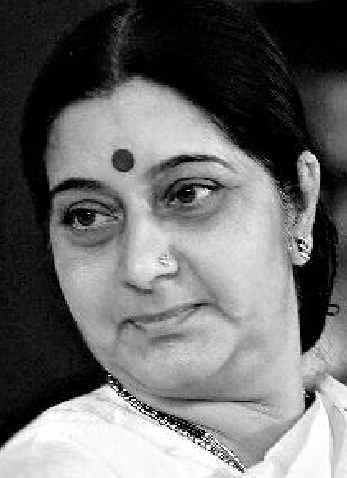 இலங்கை தமிழ் மக்களின் பிரச்சினைக்கு அரசியல் தீர்வு காண்பதில் இந்தியா மிக தீவிரமாக உள்ளது என இலங்கைக்கு விஜயம் மேற்கொண்ட இந்திய நாடாளுமன்ற தூதுக்குழுவின் தலைவியான சுஷ்மா ஸ்வராஜ் கூறினார். இந்திய நாடாளுமன்றத் தூதுக்குழுவின் இலங்கை விஜயத்தின் இறுதியில் இன்று சனிக்கிழமை கொழும்பில் நடைபெற்ற செய்தியாளர் மாநாட்டிலேயே சுஷ்மா ஸ்வராஜ் தெரிவித்தார். அரசியல் தீர்வு விடயத்தில் நாம் மிக மிக தீவிரமாக இருக்கிறோம்' எனக் கூறிய அவர், அரசாங்கமும் தமிழ் தேசியக் கூட்டமைப்பும் இயன்றவரை விரைவாக பேச்சுவார்த்தையை ஆரம்பிக்க வேண்டும் எனவும் கூறினார். வடக்கில் இடம்பெயர்ந்த மக்களை மீளக்குடியேற்றுவதில் முன்னேற்றம் ஏற்பட்டுள்ளதாக கூறிய அவர், எனினும் குறிப்பிடத்தக்க எண்ணிக்கையான மக்கள் இன்னும் இடைத்தங்கல் முகாம்களிலும் உறவினர், நண்பர்கள் வீடுகளிலும் தங்கியுள்ளதாக தெரிவித்தார். 'அம்மக்கள் தமது வீடுகளுக்குத் திரும்பும்வரை எமது இலக்கு முடிவடையப்போவதில்லை' என அவர் கூறினார்.
இலங்கை தமிழ் மக்களின் பிரச்சினைக்கு அரசியல் தீர்வு காண்பதில் இந்தியா மிக தீவிரமாக உள்ளது என இலங்கைக்கு விஜயம் மேற்கொண்ட இந்திய நாடாளுமன்ற தூதுக்குழுவின் தலைவியான சுஷ்மா ஸ்வராஜ் கூறினார். இந்திய நாடாளுமன்றத் தூதுக்குழுவின் இலங்கை விஜயத்தின் இறுதியில் இன்று சனிக்கிழமை கொழும்பில் நடைபெற்ற செய்தியாளர் மாநாட்டிலேயே சுஷ்மா ஸ்வராஜ் தெரிவித்தார். அரசியல் தீர்வு விடயத்தில் நாம் மிக மிக தீவிரமாக இருக்கிறோம்' எனக் கூறிய அவர், அரசாங்கமும் தமிழ் தேசியக் கூட்டமைப்பும் இயன்றவரை விரைவாக பேச்சுவார்த்தையை ஆரம்பிக்க வேண்டும் எனவும் கூறினார். வடக்கில் இடம்பெயர்ந்த மக்களை மீளக்குடியேற்றுவதில் முன்னேற்றம் ஏற்பட்டுள்ளதாக கூறிய அவர், எனினும் குறிப்பிடத்தக்க எண்ணிக்கையான மக்கள் இன்னும் இடைத்தங்கல் முகாம்களிலும் உறவினர், நண்பர்கள் வீடுகளிலும் தங்கியுள்ளதாக தெரிவித்தார். 'அம்மக்கள் தமது வீடுகளுக்குத் திரும்பும்வரை எமது இலக்கு முடிவடையப்போவதில்லை' என அவர் கூறினார். [நண்பர் மீராபாரதி தனது முகநூலில் ஐயரின் 'ஈழப் போராட்டத்தில் எனது பதிவுகள்' நூல் பற்றி எழுதிய பதிவினை 'பதிவுகள்' வாசகர்களுடன் பகிர்ந்து கொள்கின்றது. - பதிவுகள்] ஈழ விடுதலைப் போராட்டம் தொடர்பான அனுபவங்களின் பதிவுகளாக, நினைவுக் குறிப்புகளாக, புனைவுகளாக, சுயசரிதைகளாக, ஆய்வுகளாக சில நூல்களே வெளிவந்திருக்கின்றன. இவ்வாறு வெளிவந்தவற்றில் பலவற்றை சசீவன் தனது வலைப்பதிவில் குறிப்பிட்டிருக்கின்றார். அவையாவன, அருளரின் லங்காராணி, கோவிந்தனின் புதியதோர் உலகம், சி. புஸ்பராஜாவின் ஈழப்போராட்டத்தில் எனது சாட்சியம், செழியனின் ஒரு மனிதனின் நாட்குறிப்பிலிருந்து, அடேல் பாலசிங்கம் சுதந்திர வேட்கை, நேசனின் புளொட்டில் இருந்து தீப்பொறி வரையான எனது பதிவுகள், சீலனின் புளொட்டில் நான், அன்னபூரணாவின் தேசிய விடுதலைப் போராட்டம் மீளாய்வை நோக்கி, அலியார் மர்சூஃப்பின் ஒரு போராளியின் டயறி, அற்புதனின் துரையப்பா முதல் காமினி வரை, மணியத்தின் புலிகளின் வதைமுகாம் அனுபவங்கள், ரயாகரனின் வதைமுகாமில் நான், ராஜினி திராணகம, ராஜன் ஹூல், கே.. சிறீதரன் மற்றும் தயா சோமசுந்தரம் ஆகியோர் இணைந்து எழுதிய முறிந்த பனை, செ. யோகரட்ணத்தின் தீ மூண்ட நாட்களும் தீண்டாமைக் கொடுமைகளும், மற்றும் பாலநடராஜ ஐயர் எழுதிய நூலொன்றும் உள்ளது என குறிப்பிட்டுள்ளார். இவை எல்லாவற்றையும் வாசிக்க சந்தர்ப்பம் கிடைக்கவில்லை. இந்த வரிசையில் இறுதியாக வந்துள்ள நூல், கணேசன் என்கின்ற ஐயரின் ஈழப் போராட்டத்தில் எனது பதிவுகள் என்பதாகும். இதை இணையத்தில் வெளிவந்தபோது வாசித்து பின் நூலாக வெளிவந்தபின் இரண்டாம் தரமாக வாசிக்கின்றேன். சில நூல்களைப் பல மீள் வாசிப்புகளுக்கு உட்படுத்தப்படும் பொழுதுதான் அதன் பல்வேறு விடயங்களை அவதானிக்கக் கூடியதாக இருக்கின்றது. அவ்வாறான அவதானிப்பினை அடிப்படையாகக் கொண்ட சில குறிப்புக்களே இந்தப் பதிவு.
[நண்பர் மீராபாரதி தனது முகநூலில் ஐயரின் 'ஈழப் போராட்டத்தில் எனது பதிவுகள்' நூல் பற்றி எழுதிய பதிவினை 'பதிவுகள்' வாசகர்களுடன் பகிர்ந்து கொள்கின்றது. - பதிவுகள்] ஈழ விடுதலைப் போராட்டம் தொடர்பான அனுபவங்களின் பதிவுகளாக, நினைவுக் குறிப்புகளாக, புனைவுகளாக, சுயசரிதைகளாக, ஆய்வுகளாக சில நூல்களே வெளிவந்திருக்கின்றன. இவ்வாறு வெளிவந்தவற்றில் பலவற்றை சசீவன் தனது வலைப்பதிவில் குறிப்பிட்டிருக்கின்றார். அவையாவன, அருளரின் லங்காராணி, கோவிந்தனின் புதியதோர் உலகம், சி. புஸ்பராஜாவின் ஈழப்போராட்டத்தில் எனது சாட்சியம், செழியனின் ஒரு மனிதனின் நாட்குறிப்பிலிருந்து, அடேல் பாலசிங்கம் சுதந்திர வேட்கை, நேசனின் புளொட்டில் இருந்து தீப்பொறி வரையான எனது பதிவுகள், சீலனின் புளொட்டில் நான், அன்னபூரணாவின் தேசிய விடுதலைப் போராட்டம் மீளாய்வை நோக்கி, அலியார் மர்சூஃப்பின் ஒரு போராளியின் டயறி, அற்புதனின் துரையப்பா முதல் காமினி வரை, மணியத்தின் புலிகளின் வதைமுகாம் அனுபவங்கள், ரயாகரனின் வதைமுகாமில் நான், ராஜினி திராணகம, ராஜன் ஹூல், கே.. சிறீதரன் மற்றும் தயா சோமசுந்தரம் ஆகியோர் இணைந்து எழுதிய முறிந்த பனை, செ. யோகரட்ணத்தின் தீ மூண்ட நாட்களும் தீண்டாமைக் கொடுமைகளும், மற்றும் பாலநடராஜ ஐயர் எழுதிய நூலொன்றும் உள்ளது என குறிப்பிட்டுள்ளார். இவை எல்லாவற்றையும் வாசிக்க சந்தர்ப்பம் கிடைக்கவில்லை. இந்த வரிசையில் இறுதியாக வந்துள்ள நூல், கணேசன் என்கின்ற ஐயரின் ஈழப் போராட்டத்தில் எனது பதிவுகள் என்பதாகும். இதை இணையத்தில் வெளிவந்தபோது வாசித்து பின் நூலாக வெளிவந்தபின் இரண்டாம் தரமாக வாசிக்கின்றேன். சில நூல்களைப் பல மீள் வாசிப்புகளுக்கு உட்படுத்தப்படும் பொழுதுதான் அதன் பல்வேறு விடயங்களை அவதானிக்கக் கூடியதாக இருக்கின்றது. அவ்வாறான அவதானிப்பினை அடிப்படையாகக் கொண்ட சில குறிப்புக்களே இந்தப் பதிவு.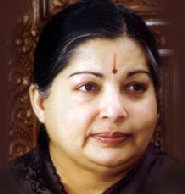 [ஏப்ரில் 2012]இலங்கை செல்லும் இந்திய எம்.பி.க்கள் குழுவில் அ.தி.மு.க. இடம் பெறாது. 1/1 சென்னை, ஏப்.12 - இலங்கை தமிழர்களின் மறுவாழ்வு- மீள் குடியமர்த்தல் பற்றி அதிபருடன் பேச வாய்ப்பு மறுக்கப்பட்டுள்ளதாலும், இலங்கை தமிழர்களுக்கு எதிரான செயல்களில் ராஜபக்ஷே அரசு தொடர்ந்து ஈடுபட்டு வருவதாலும், இலங்கை செல்லும் இந்திய நாடாளுமன்ற கூட்டுக் குழுவில் அ.தி.மு.க. உறுப்பினர் ரபி பெர்னார்டு பங்கேற்க மாட்டார் என சட்டப் பேரவையில் முதல்வர் ஜெயலலிதா திட்டவட்டமாக அறிவித்தார். நேற்று முதல்வர் ஜெயலலிதா 110 வது விதியின் கீழ் அறிக்கை ஒன்றை வாசித்தார். அதன் விபரம் வருமாறு:- இலங்கையில் 2009 ஆம் ஆண்டு நடைபெற்ற உள்நாட்டுப் போரின் போது இடம் பெயர்ந்த இலங்கைத் தமிழர்களை அந்த நாட்டில் மறு குடியமர்த்துவதற்காகவும், மறுவாழ்வு அளிப்பதற்காகவும், இந்திய நாட்டு உதவியுடன் மேற்கொள்ளப்பட்ட மேம்பாட்டு பணிகளை பார்வையிடுவதற்காக, இம்மாதம் 16 ஆம் தேதி முதல் 21 ஆம் தேதி வரை, மக்களவை எதிர்க்கட்சித் தலைவர் தலைமையில் 15 உறுப்பினர்கள் அடங்கிய இந்திய பாராளுமன்ற கூட்டுக் குழுவை இலங்கைக்கு மத்திய அரசு அனுப்ப முடிவு செய்து, அதில் அ.தி.மு.க. சார்பில் ஓர் உறுப்பினரை அனுப்புமாறு மத்திய அரசு கேட்டுக் கொண்டது. மத்திய அரசு கேட்டுக் கொண்டதற்கிணங்க, அ.தி.மு.க. சார்பில் மாநிலங்களவை உறுப்பினர் வில்லியம் ரபி பெர்னார்டு அனுப்ப நான் முடிவு செய்தேன்.
[ஏப்ரில் 2012]இலங்கை செல்லும் இந்திய எம்.பி.க்கள் குழுவில் அ.தி.மு.க. இடம் பெறாது. 1/1 சென்னை, ஏப்.12 - இலங்கை தமிழர்களின் மறுவாழ்வு- மீள் குடியமர்த்தல் பற்றி அதிபருடன் பேச வாய்ப்பு மறுக்கப்பட்டுள்ளதாலும், இலங்கை தமிழர்களுக்கு எதிரான செயல்களில் ராஜபக்ஷே அரசு தொடர்ந்து ஈடுபட்டு வருவதாலும், இலங்கை செல்லும் இந்திய நாடாளுமன்ற கூட்டுக் குழுவில் அ.தி.மு.க. உறுப்பினர் ரபி பெர்னார்டு பங்கேற்க மாட்டார் என சட்டப் பேரவையில் முதல்வர் ஜெயலலிதா திட்டவட்டமாக அறிவித்தார். நேற்று முதல்வர் ஜெயலலிதா 110 வது விதியின் கீழ் அறிக்கை ஒன்றை வாசித்தார். அதன் விபரம் வருமாறு:- இலங்கையில் 2009 ஆம் ஆண்டு நடைபெற்ற உள்நாட்டுப் போரின் போது இடம் பெயர்ந்த இலங்கைத் தமிழர்களை அந்த நாட்டில் மறு குடியமர்த்துவதற்காகவும், மறுவாழ்வு அளிப்பதற்காகவும், இந்திய நாட்டு உதவியுடன் மேற்கொள்ளப்பட்ட மேம்பாட்டு பணிகளை பார்வையிடுவதற்காக, இம்மாதம் 16 ஆம் தேதி முதல் 21 ஆம் தேதி வரை, மக்களவை எதிர்க்கட்சித் தலைவர் தலைமையில் 15 உறுப்பினர்கள் அடங்கிய இந்திய பாராளுமன்ற கூட்டுக் குழுவை இலங்கைக்கு மத்திய அரசு அனுப்ப முடிவு செய்து, அதில் அ.தி.மு.க. சார்பில் ஓர் உறுப்பினரை அனுப்புமாறு மத்திய அரசு கேட்டுக் கொண்டது. மத்திய அரசு கேட்டுக் கொண்டதற்கிணங்க, அ.தி.மு.க. சார்பில் மாநிலங்களவை உறுப்பினர் வில்லியம் ரபி பெர்னார்டு அனுப்ப நான் முடிவு செய்தேன்.![விடுதலைப் புலிகளுக்கும் , இலங்கை அரசபடைகளுக்குமிடையில் நடைபெற்ற யுத்தத்தின் முக்கியமானதோர் திருப்புமுனையாக அமைந்தது ஆனந்தபுரத்தில் புலிகளுக்கேற்பட்ட இழப்பு. அதுபற்றிய பத்திரிகையாளர் டி.பி.எஸ்.ஜெயராஜின் ஆங்கிலக் கட்டுரையின் தமிழ் மொழிபெயர்ப்பு தேனீ இணையத்தளத்தில் வெளியானது. அதனை ஒரு பதிவுக்காக இங்கு மீள்பிரசுரம் செய்கின்றோம். - பதிவுகள்]](/images/stories/ltte_flag.jpg) [விடுதலைப் புலிகளுக்கும் , இலங்கை அரசபடைகளுக்குமிடையில் நடைபெற்ற யுத்தத்தின் முக்கியமானதோர் திருப்புமுனையாக அமைந்தது ஆனந்தபுரத்தில் புலிகளுக்கேற்பட்ட இழப்பு. அதுபற்றிய பத்திரிகையாளர் டி.பி.எஸ்.ஜெயராஜின் ஆங்கிலக் கட்டுரையின் தமிழ் மொழிபெயர்ப்பு தேனீ இணையத்தளத்தில் வெளியானது. அதனை ஒரு பதிவுக்காக இங்கு மீள்பிரசுரம் செய்கின்றோம். - பதிவுகள்]
[விடுதலைப் புலிகளுக்கும் , இலங்கை அரசபடைகளுக்குமிடையில் நடைபெற்ற யுத்தத்தின் முக்கியமானதோர் திருப்புமுனையாக அமைந்தது ஆனந்தபுரத்தில் புலிகளுக்கேற்பட்ட இழப்பு. அதுபற்றிய பத்திரிகையாளர் டி.பி.எஸ்.ஜெயராஜின் ஆங்கிலக் கட்டுரையின் தமிழ் மொழிபெயர்ப்பு தேனீ இணையத்தளத்தில் வெளியானது. அதனை ஒரு பதிவுக்காக இங்கு மீள்பிரசுரம் செய்கின்றோம். - பதிவுகள்]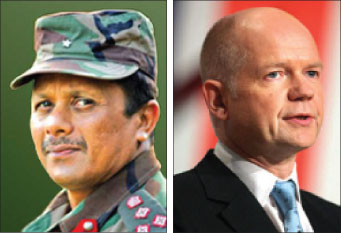 A group of Tamil diaspora activists who have pushed for legal action against the UK Foreign and Commonwealth Office (FCO), continue to claim that there is “credible evidence” of Sri Lankan Army General turned diplomat, Major General Prasanna de Silva’s involvement in alleged war crimes. Major General de Silva presently serves as defence adviser to the Sri Lankan High Commission in London, but is expected to return to the country shortly. Following the refusal of British Foreign Secretary, William Hague, to declare Major General Silva persona non gratae and deny him diplomatic immunity, the Global Tamil Forum (GTF) has now pushed for a judicial review of the FCO’s actions. “Of course we believe evidence against Maj. Gen. Silva is credible,” the GTF’s spokesperson, Suren Surendiran, said in an email interview last week. “However, let a court decide whether he is guilty or not guilty. By avoiding facing justice, one cannot prove his or her innocence. By running away from the UK, that’s exactly what Mr. Silva is avoiding. If he or the government has nothing to hide, they must get these charges proven wrong, rather than hiding behind immunity and complaining.”
A group of Tamil diaspora activists who have pushed for legal action against the UK Foreign and Commonwealth Office (FCO), continue to claim that there is “credible evidence” of Sri Lankan Army General turned diplomat, Major General Prasanna de Silva’s involvement in alleged war crimes. Major General de Silva presently serves as defence adviser to the Sri Lankan High Commission in London, but is expected to return to the country shortly. Following the refusal of British Foreign Secretary, William Hague, to declare Major General Silva persona non gratae and deny him diplomatic immunity, the Global Tamil Forum (GTF) has now pushed for a judicial review of the FCO’s actions. “Of course we believe evidence against Maj. Gen. Silva is credible,” the GTF’s spokesperson, Suren Surendiran, said in an email interview last week. “However, let a court decide whether he is guilty or not guilty. By avoiding facing justice, one cannot prove his or her innocence. By running away from the UK, that’s exactly what Mr. Silva is avoiding. If he or the government has nothing to hide, they must get these charges proven wrong, rather than hiding behind immunity and complaining.”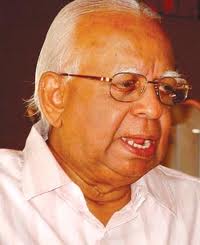 [5 April 2012, 8:02 pm] Mr. Deputy Chairman of Committees, we are discussing in the House today, an Adjournment Motion pertaining to the Resolution passed at the UN Human Rights Council at the 19th Session last month. Before I commence my views in regard to what happened at Geneva , I think I need to outline briefly the history and the growth of the tragedy of the Tamil people in this country and the Tamil issue, to put things in proper perspective. The Sri Lankan State has been insensitive and callous in dealing with the issues pertaining to the Tamil people, particularly in the North and the East. It was only the Tamil people who stood up politically against the Sri Lankan State, though it must be acknowledged that the Tamil-speaking Muslim people in the North and the East have also had similar issues and concerns. It is the Tamil people who have shown the resilience to stand up to the Sri Lankan State. More than six decades later, after the country attained Independence , we still show that resilience. That is because we are an ancient people with our own civilization and our distinct identity. We are prepared to be integrated into the Sri Lankan nation but we cannot be and will not be assimilated.
[5 April 2012, 8:02 pm] Mr. Deputy Chairman of Committees, we are discussing in the House today, an Adjournment Motion pertaining to the Resolution passed at the UN Human Rights Council at the 19th Session last month. Before I commence my views in regard to what happened at Geneva , I think I need to outline briefly the history and the growth of the tragedy of the Tamil people in this country and the Tamil issue, to put things in proper perspective. The Sri Lankan State has been insensitive and callous in dealing with the issues pertaining to the Tamil people, particularly in the North and the East. It was only the Tamil people who stood up politically against the Sri Lankan State, though it must be acknowledged that the Tamil-speaking Muslim people in the North and the East have also had similar issues and concerns. It is the Tamil people who have shown the resilience to stand up to the Sri Lankan State. More than six decades later, after the country attained Independence , we still show that resilience. That is because we are an ancient people with our own civilization and our distinct identity. We are prepared to be integrated into the Sri Lankan nation but we cannot be and will not be assimilated.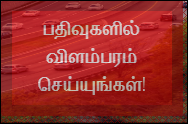
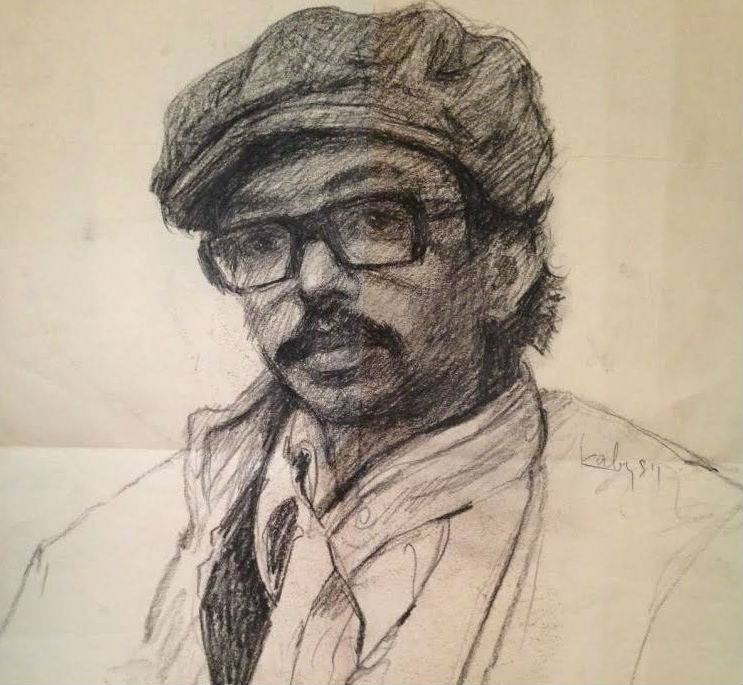
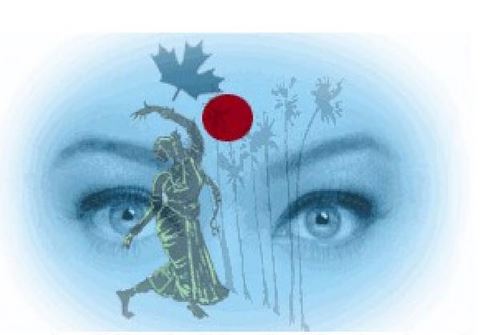 பதிவுகள். காம் மின்னூல் தொகுப்புகள்
பதிவுகள். காம் மின்னூல் தொகுப்புகள் 

